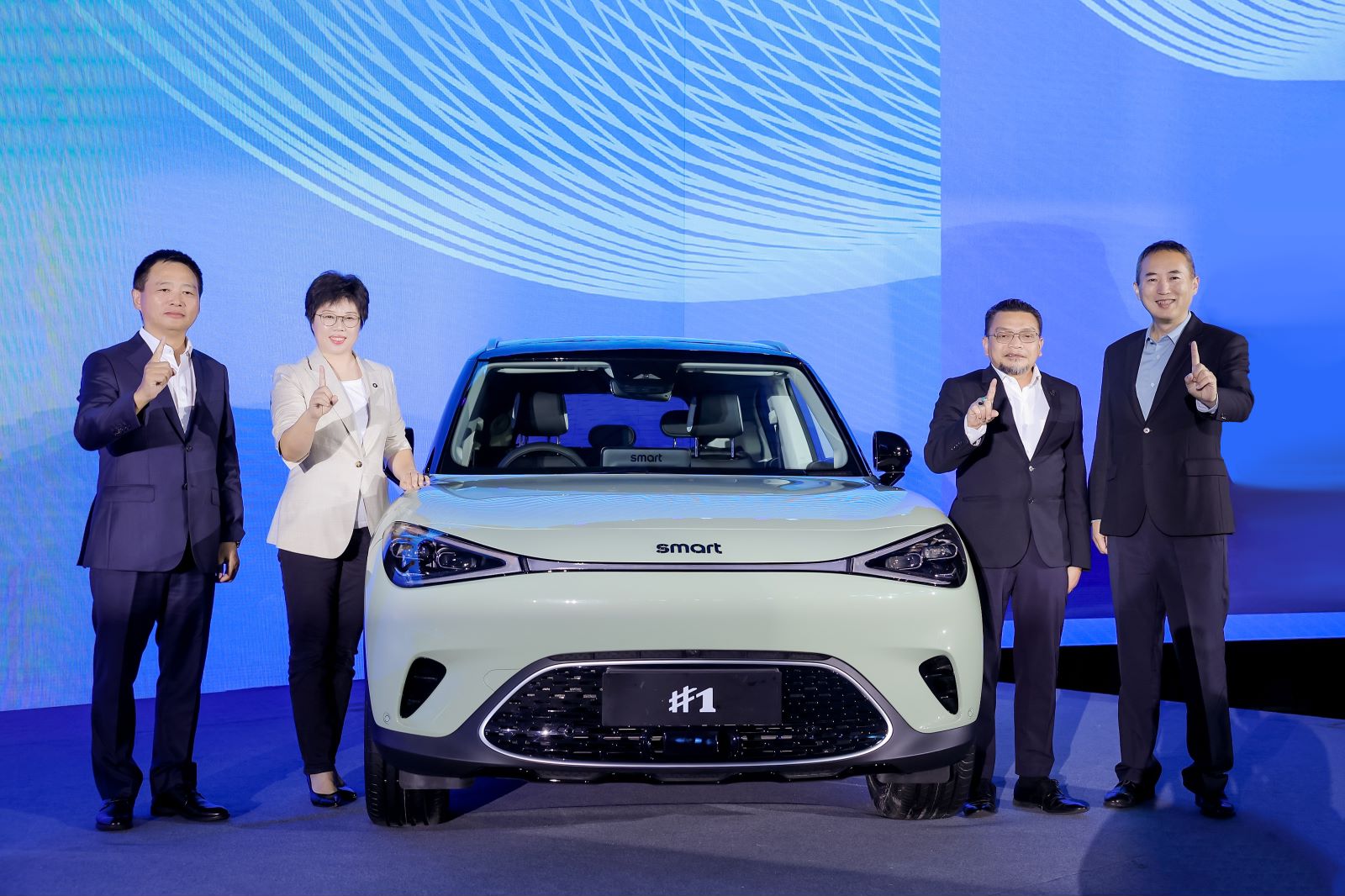At the 2023 China-ASEAN International Consumer Season kick-off ceremony and the Benz Smart Southeast Asia market launch, Benz Smart and Proton Auto formally signed a Memorandum of Understanding to deepen cooperation. We engaged in discussions with global CEO of Benz Smart, Tong Xiangbei, and Zhang Mingxia, the Vice President of Sales, Marketing and After-sales, concerning Benz Smart’s strategies in the Southeast Asia market.
Following are the key information from the conversation:
On Benz Smart’s Upgraded Role in Southeast Asia Market Strategy
Benz Smart’s core strategy is “Dual core in China and Europe, Global Layout.” In this global layout, Benz Smart officially identifies Southeast Asia as the maiden step in its ‘southward and westward expansion,’ with Malaysia becoming a forefront in this southern advancement. The Southeast Asia market is relatively at a nascent stage in terms of new energy. Take Malaysia, for instance, the annual sales of new energy vehicles hover around 3,000, manifesting a vast market potential. However, challenges such as low oil prices in Malaysia and insufficient infrastructure like charging stations may limit the complete eruption of the market. Proton Auto’s sale in Malaysia last year was 140,000 units, in actuality, there is a giant fuel vehicle market to be converted. Amidst the global wave of new energy, the Benz Smart team perceives more opportunities in Southeast Asia.
In settling in Malaysia, Benz Smart, as a part of the China-emerged new energy wave, holds a certain edge, coupled with the brand accumulation and business model innovation, can provide competitive products. More importantly, as Proton Auto is transforming from fuel-driven cars, Benz Smart will become the core brand it creates in the new energy sector, thus, in the Malaysian market, Benz Smart can expect some resource inclination, allowing both parties to consolidate resources for mutual benefit.
On Benz Smart’s Localised R&D and Layout
Benz Smart’s globalisation strategy aims to create a global car, customising the product according to different markets. Benz Smart and the Proton Auto team made a series of localised practices for Malaysia, including but not limited to software design and ecosystem creation. They aimed at designing an E-commerce APP suitable for one-stop bank loan payments and exploring business models digitally. The familiarity that the Proton Auto team has with the local market is beneficial for satisfying the local consumer demands.
Also, BenzSmart adheres to a global standard of operation, while Proton Auto maintains its position as the general distributor for BenzSmart. For localisation in Southeast Asia, Benz Smart would construct and implement business features in tandem with Proton Auto. Pre-sales in the current Malaysian market, forthcoming test drive activities and the brand’s 25th-anniversary events are specific examples. Moreover, the experiences accumulated globally, including in Germany and the China markets, will eventually empower the Malaysian market. In terms of operation mode, smart employs Benz’s channel in Europe and an independent store model in China, providing more flexibility for Benz Smart in markets outside China and Europe. The crucial aspect here is whether the team can respond promptly under this model.## Discussing Smart’s Recent Financing Activities
This round for Smart was a strategic investment. In fact, Smart’s financial health is sound, possessing billions of proprietary funds, and the banking sector is very optimistic about the Smart brand. Therefore, Smart can rely on its own funds and loans to launch three new vehicles. The strategic investment move by Smart is considered at different stages of development. Smart, transitioning from start-up to rapid development phase, needs to expand the friends’ circle of Smart in order to allow the brand to continue to grow. For instance, Tianqi Lithium led the A round of financing for Smart, allowing Smart to expand up and down the industrial chain. Tianqi Lithium, being upstream and Smart at the end of the industrial chain, can empower each other.
Discussing This Year’s Competitive Pressures and Challenges
Faced with this year’s intense challenge, Smart consistently adheres to its established business rhythm. This year, Smart is operating at full capacity, promoting new products, brand, and channel layout. Especially under the D2C model, Smart currently has over 40,000 delivered users, necessitating the evolution and growth of the user operations team. In the future, Smart will also empower its operating model through network openness and channel sinking, striving to improve operational efficiency at full speed, and create a more user-friendly operation environment to boost conversions.
Discussing How Global Deployment Responds Quickly to the Market
Firstly, Smart’s internal management team has extremely high communication efficiency, and daily decision-making execution is very swift. In terms of the team, including R&D, industrial chain, production, logistics, and downstream marketing, Smart had already established a robust business logic and process norms a few years ago, enabling business iteration within Smart’s internal business system. Furthermore, management’s fast decision-making and talent empowerment are crucial factors in Smart’s progress from 0 to 1.
In different countries, Smart also faces different regulations and customs. Smart, positioned as a global company, must comply with all global laws and regulations. Meanwhile, the systematic construction is also undertaken. Besides, strong teams are formed from management to staff, and powerful partners, for example, Malaysia’s Proton Motors, are brought onboard, allowing Smart to quickly familiarize itself with the Malaysian market.
This article is a translation by ChatGPT of a Chinese report from 42HOW. If you have any questions about it, please email bd@42how.com.
